It’s a common saying in critiques about popular culture that a hero is only as great as his greatest villains. With this in mind, I thought it might be a good idea to take some time to explore the reasons why we cheer or jeer for the bad guys. What makes a great villain? Is it motivation, cunning, or an arc that leads to their ascension into all-out bastardhood?
Let’s take a look at five case studies and examine why they mattered, what they were all about, and how they can act as inspiration for a new generation of writers.
5. Sauron (The Lord of the Rings)
Let’s start off our list with an interesting and largely unseen ideal of villainy. Sauron is arguably the first major antagonist of the modern fantasy genre. Most people know him as the Dark Lord from The Lord of the Rings, where he appears as an ever-present and malevolent threat that plunges the world into war. However, that story only scratches the surface of the character. Many people know of his ultimate downfall at the hands of two Hobbits, a King, and a creature who coughs too much, but few people know about how he came to be such a force of evil.
Sauron’s story is interesting not just because of where it leads. His origin mixes a whole host of mythological concepts with the basic idea of how absolute power leads to corruption. After all, he wasn’t the first Dark Lord in the mythology of Middle-Earth. Morgoth was the one that corrupted his mind and pushed him into the darkness, but he was aided by the fact that Sauron (then named Mairon) loved to chase perfection and hated waste.
A natural consequence of such idealism is that he would want to bring that mythological world to heel under his will and dominion. After all, why should there be freedom when people could surrender their minds to one overarching intelligence?
4. Emperor Palpatine (Star Wars)
While people continue to argue about the quality of the Star Wars movies, there is one fact about them that is undeniably clear. Ian McDiarmid’s sinister turn as Darth Sidious cast a long shadow that actors and writers are still trying to escape from to this day. And my reasoning for that is simple. The creation of the most feared Sith Lord in the history of the galaxy is a perfect merger of casting and themes.
When the soon-to-be Emperor stepped on the screen in the prequels, you knew that something devious was about to happen. Contrary to what critics like Confused Matthew or Red Letter Media might think, his arc in the story was clearly defined as the rise of a power-mad dictator who engineered a no-win scenario for the entire galaxy.
Think about it. It didn’t matter who won the Clone Wars because he could use it to his advantage. In the movies, the ensuing battles thinned out the Jedi and allowed him to concoct a narrative to ensure his domination. Even if it went the other way, the result would have been the same because he controlled the droid armies through subordinates that always seemed to escape justice. And in the end, he would reveal himself as the tyrant that we all know, but not even Anakin Skywalker cared that much. By then, he and much of the galaxy had already been swayed toward his iron-fisted rule.
His demonic attitude would continue in the much more personal story of Return of the Jedi. Even with the distraction of stone age teddy bears, the finale of that movie called forth the ideas of temptation, desperation, and the ultimate love between a father and son.
3. Frank Underwood (House of Cards)
Although the Netflix series is an Americanized adaptation, it scored big points with audiences by casting the legendary Kevin Spacey as Frank Underwood. Played against type as a Democratic Majority Whip from South Carolina, Spacey’s Machiavellian performance created a character of contradictions. On one hand, he is a power-hungry sociopath that seeks to destroy anyone who gets in his way. On the other, he seems awfully relatable because of the Shakespearean construct of busting down the fourth wall.
It’s particularly interesting because these segments serve a two-fold purpose. In the beginning, it seems like he is our best friend, using the time to draw us into his plots to backstab another politician. As the situation escalates to murder and full blown political treachery, it becomes an intriguing way to peer into the mind of a ruthless, but efficient leader.
Should we still root for him as he climbs the ladder towards more power? What if he uses the platform to make the country better? Would we want to see him get away with everything or fall to pieces as the title suggests? The combination of Spacey and an epic writing team makes it seem like there are no easy answers to any of these questions.
And to be honest, who could ask for anything more?
2. Joffrey Baratheon (Oh, who are we kidding? He’s a Lannister!) (Game of Thrones)
Game of Thrones has always had a unique distinction of being a morally grey fantasy world, but that didn’t stop the books or the show from introducing villains that would have made Snidely Whiplash blush. They say that you never forget your first, so it’s difficult to not give this high dishonor to anyone other than Joffrey Lannister. While the source material was a great start for the biggest bastard in Westeros, the television adaptation elevated the character into someone that we loved to hate with the casting of Jack Gleeson.
While Tommen and Myrcella turned out to be relatively normal, Mister Gleeson gave Joffrey a demeanor that was both tyrannical and kind of annoying, which fits the rather disgusting nature of the Lannister household. Right from the sudden death of Eddard Stark at the end of Season One, viewers began to cringe at his sheer bastardy, fearing that he might kill the characters that we love, some cute little kittens, and virtually everything else in the known universe. And to be fair, those worries were entirely justified because his actions effectively started The War of the Five Kings!
Even with all of the torture and turmoil in the story, Joffrey takes his place in the lexicon of villainy as his death marked George R.R. Martin’s first big pay-off. In a world where power seems to give one the upper hand, his death was extremely satisfying and kept the story becoming depressing. With that said. it also paved the way for the insanity that we would see in the later years of the saga.
Now that’s good writing…
1. God (The Strain… and elsewhere.)
Yep, we’re going there.
While I previously remarked that The Strain was a cheesy delight, The Night Eternal created a head-scratching turn by remarking upon the origins of the Ancients and the Master. As it turned out, these vampires were not a scientific phenomenon, but a pseudo-spiritual one. Their origin came from when the archangel, Ozyrel, assisted in the destruction of Sodom and Gomorrah. While there, he became fascinated with the blood of humanity and began attacking people, ultimately drinking the blood of a fellow angel as well.
As punishment, he was split into seven pieces and scattered all over the world, which gave the Ancients and the other vampires the weaknesses that we see in the story. With that said, it also raises the question of what happened to the interventionist God of the Old Testament, who is actually real in this universe. If you read into the traditional lore, that would mean that God is responsible for a nuclear winter that killed billions of people and condemned humanity to two years of being treated as livestock.
This part of the story is interesting to think about because it calls upon the Epicurean Dilemma. In this case, God seems able, but unwilling to take action against a seemingly unstoppable evil. With this in mind, is the Master a mere reflection of his creator… or am I just overthinking this for the sake of writing a compelling listicle?
You decide.
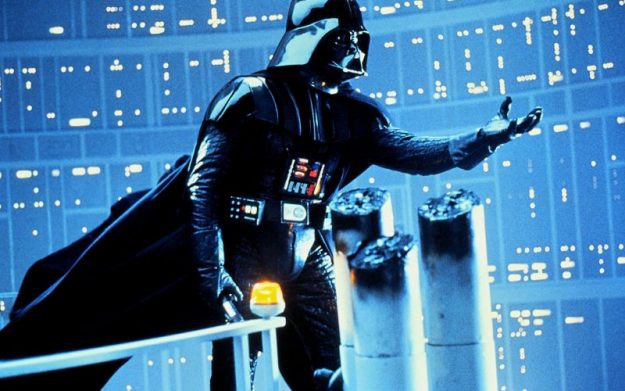
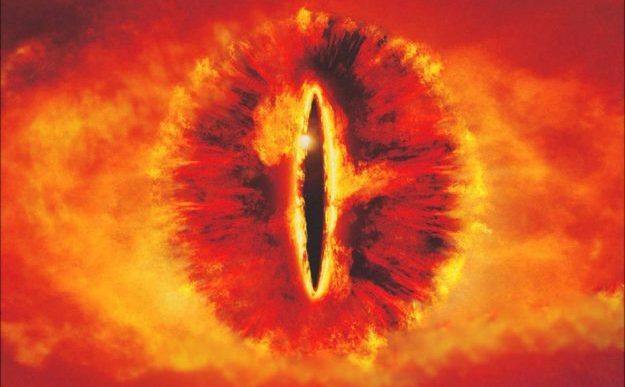
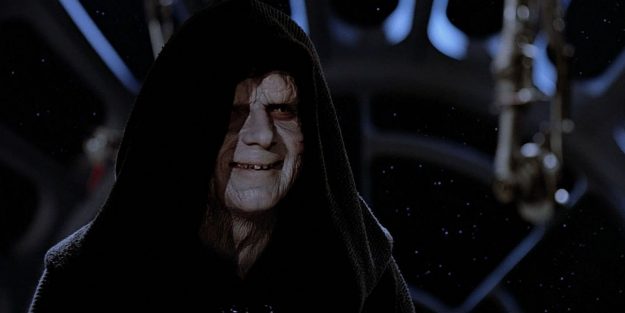
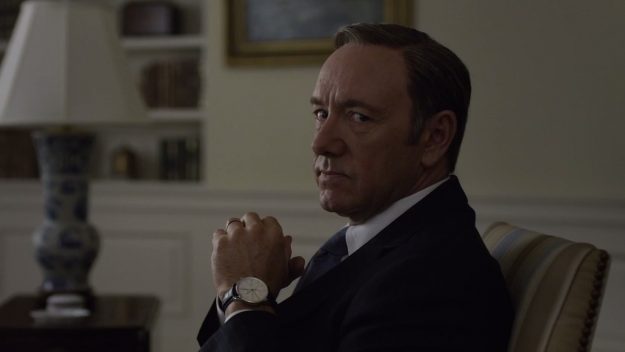
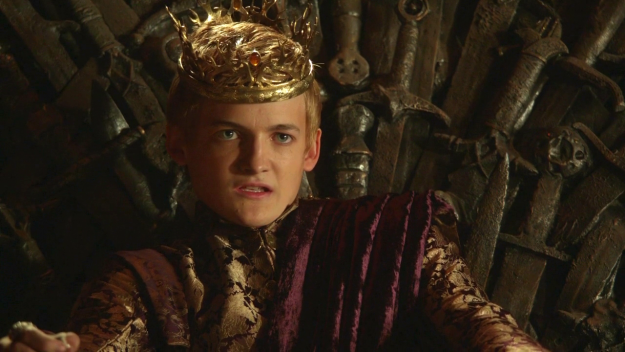
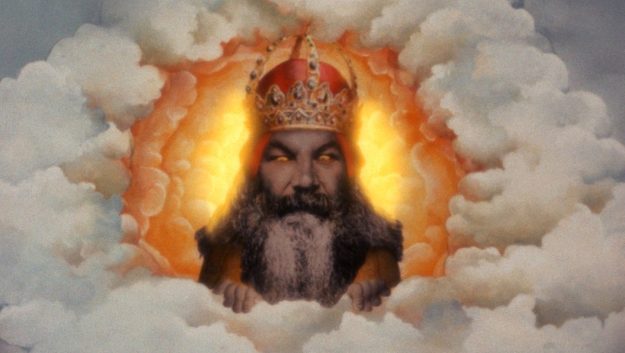
No Comments Yet